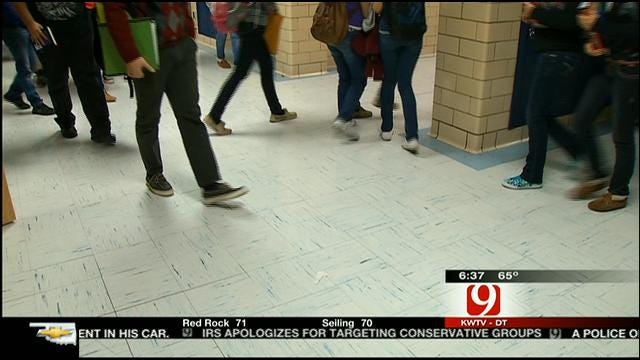Inappropriate Teaching: The Social Media Solution
Social media policies may not stop a bad teacher from trying to engage in an inappropriate relationship with a student, but they could help ease the problem.Monday, May 13th 2013, 7:08 pm
The issue has become enough of a concern that state lawmakers are looking for legislative solutions. But, with action at the Capitol never a sure thing, the question arises -- what more can education leaders do to reduce the number of cases of teachers having sexual relationships with students?
A 9 Investigates report documented the frustration of officials at the State Department of Education over the fact that cases of sexual misconduct involving teachers are not reported to them. The most common way for them to find out about such an incident is to see it on the news.
Members of the State School Board worry that a gap in accountability is making it possible for teachers who get in trouble in one district to resign and, before the State Department has the chance to consider revoking their teaching certification, move to another district where they could potentially prey on other students. Lawmakers did just pass legislation -- and the Governor signed it into law -- that will require SDE be notified of allegations against teachers, under certain circumstances. Two other bills addressing the issue appear dead for the remainder of this session.
Still, educators agree, legislation can't solve the entire problem. Districts have a responsibility, as do teachers themselves, to implement and follow guidelines for communicating with students.
The explosion of social media, many believe, is the primary reason there has been an apparent increase in the number of instances where teachers cross the line with students.
"In my opinion," stated State School Board member Amy Ford, "what we're seeing is the culmination of the ease of communications -- the ability to interact...outside of a school building has increased dramatically, because of Twitter and Facebook and all the social media."
Social media has made it easier, Ford believes, for a teacher to have a private conversation with a student, and, thus, initiate some sort of private relationship.
At the same time. the vast majority of teachers have no intention of abusing the access that social media provides to students. What's more, most schools use social media as a learning tool, and can't simply prohibit their use altogether.
This is why many school districts are now in the process of developing social media policies, if they don't have them in place already.
"There are benefits to using social media in the classroom," said Derrel Fincher, Director of Learning Technologies for the State Department of Education, "but there's also the responsibility for the teacher to be a professional about their conduct with the students, and the fact that you have social media doesn't change your responsibility to be a professional."
9 Investigates contacted 20 school districts across the state, asking whether each one has a social media policy. Five of the 20 districts stated that they do have social media policies, while at least two others claimed to be in the process of developing such policies.
None of the policies prohibit teachers from communicating with students via social media, they just warn about the types of messages that should be conveyed. The guidelines are similar to sexual harassment policies.
Click here to see the social media policies for the following school districts: Putnam City, Claremore, Enid, Lawton, and Tulsa.
More Like This
May 13th, 2013
November 13th, 2024
October 28th, 2024
October 17th, 2024
Top Headlines
January 6th, 2025
January 6th, 2025
January 6th, 2025










